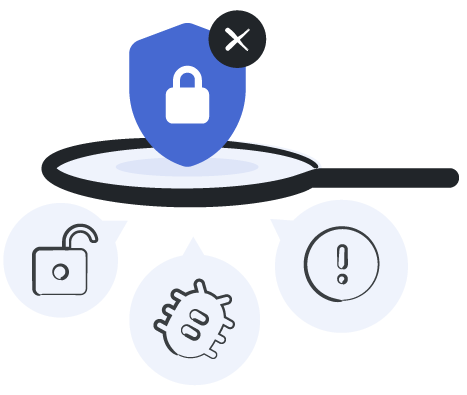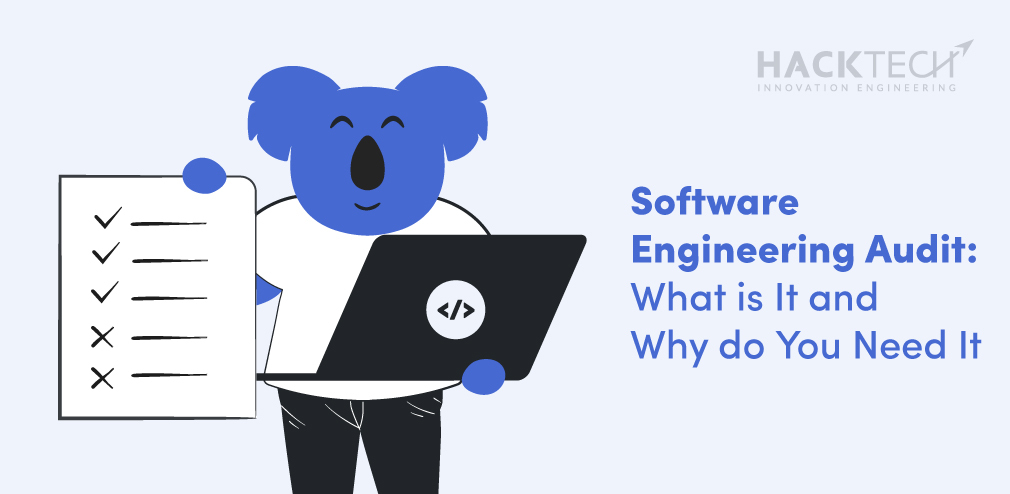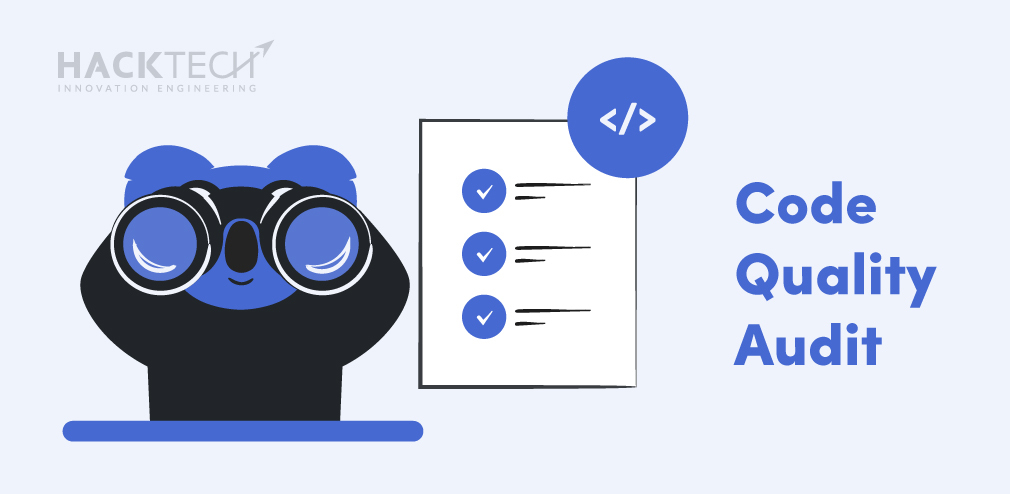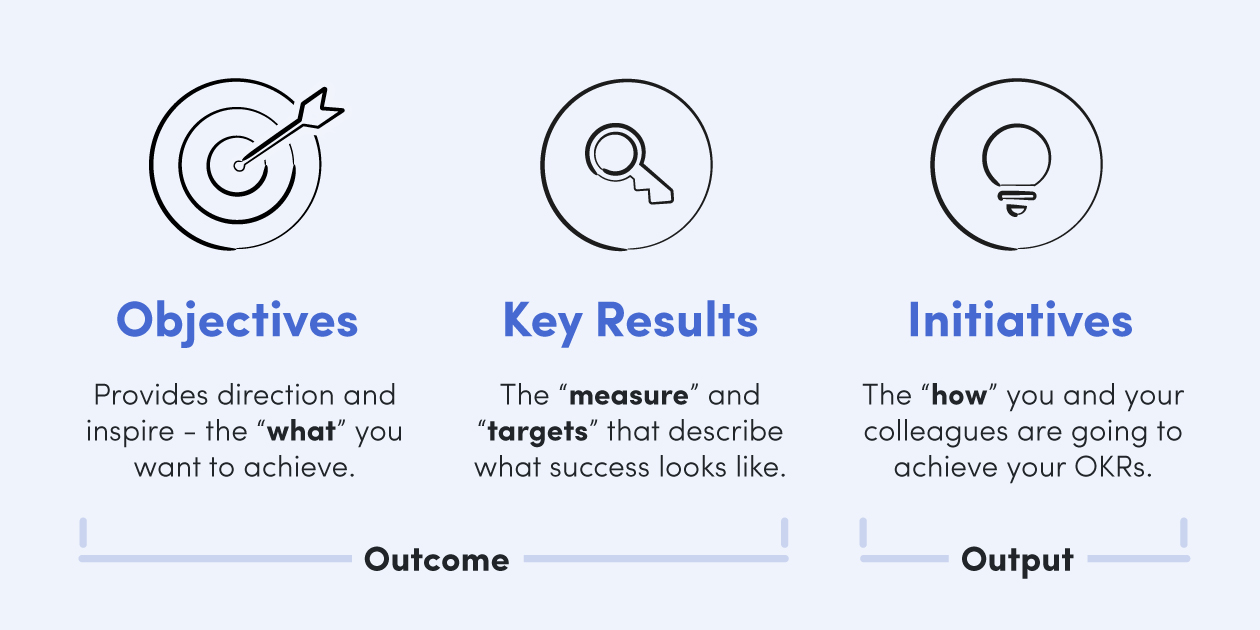Posted on September 15, 2023 by Hakob Sharabkhanyan, CEO & Founder at HackTech
A software engineering audit is like a health check for your project, aimed at enhancing its chances of success by pinpointing potential risks and weaknesses.
These audits involve a comprehensive evaluation of various aspects of your software to ensure it’s robust, secure, and efficient.
A software engineering audit is a thorough examination of software products, processes, and systems conducted independently. Its primary objective is to confirm that software development practices and products align with industry standards and organizational needs.
In this article, we will explain what software engineering auditing involves and provide reasons why it should be a routine practice for all software owners.
When to Conduct a Software Engineering Audit?
A software engineering audit is a useful tool at any stage of a software’s life. Doing it early on can help you find and fix problems more easily than after the software has been launched.
It’s also a good idea to conduct an audit when there are big changes in business needs, legal rules, or technology. An audit can help you spot issues and keep the software up to date with the latest requirements.
Here are some signs that it might be time for a software engineering audit:
- The software hasn’t been updated for a while, and needs fresh solutions.
- The product is slow and doesn’t respond well anymore.
- There has been a security issue, like a data breach.
- The product isn’t working right and your team can’t figure out why.
- You want to cut down on maintenance costs.
- Your team doesn’t have the time or know-how to do a detailed software audit.
- Before using the software widely, such as in fleet services, to catch any issues.
- Before buying a new software product, to make sure it’s a good choice.
Key Aspects of Software Engineering Audit
Before delving into a software engineering audit, certain crucial considerations need to be addressed:
Before conducting a software audit, it is important to consider the scope of the audit, the audit team, and the audit objectives. The scope of the audit should be defined clearly to ensure that all relevant areas are covered. The audit team should be comprised of experts in software development and auditing. The audit objectives should be clearly defined and aligned with the business goals.
It is also important to consider the audit methodology, tools, and techniques to be used in the audit. The audit methodology should be consistent with industry standards and best practices. The tools and techniques used in the audit should be appropriate for the software product and the audit objectives.
The key aspects of a software engineering audit typically include:
- Code Quality Audit
- Architecture Audit
- Security Audit
- Project and Product Management Audit
- Engineering Performance Audit
Code Quality Audit

A code quality audit is a comprehensive review of your software application’s source code. It’s like giving your application a health check, spotting weaknesses and bugs while ensuring it meets the highest industry standards.
Doing a code audit can stop small problems from becoming big headaches later. It helps make your software better, safer, and easier to take care of in the long run.
It’s a good idea to have a code audit if:
- Your product is old and might be outdated;
- You’ve spotted performance issues;
- There’s something wrong, but you can’t pinpoint what;
- You haven’t done a code audit in over 6 months.
Typically, a code audit service covers:
- Reviewing the current technology and structure;
- Identifying security risks;
- Checking the code quality;
- Assessing performance and ability to grow;
- Spotting potential upkeep problems
Statistics show that about 20% of bugs go unnoticed until after a product is released, only to be eventually found by end-users.
Fixing these errors in a live app is much more expensive than addressing them during the testing phase.
That’s why many product owners choose to conduct code audits, not only to save money but also to improve the quality of their offerings.
Architecture Audit
Imagine building a house. Before you start, you’d have a plan, right? Similarly, before a software is built, there’s a blueprint or a plan that outlines how different parts of the software will work together.
A software architecture audit is like a house inspection but for software. It checks whether everything in the software is designed correctly and functioning as it should.
Just like you wouldn’t want the roof of your new house to leak, you wouldn’t want the software to have any holes or weaknesses where problems can sneak in.
An audit can find these weak spots and suggest ways to fix them, ensuring that the software is strong, secure, and performs well.
During the audit, experts take a close look at the software’s blueprint and its various components.
Here are the simple steps they generally follow:
- Initial Check-up: Understanding what the software is supposed to do and checking the general state of things.
- Deep Dive: Going into the details to find any issues or areas that can be improved.
- Report: Sharing what they found, along with suggestions for improvements.
- Fixing: Working on the suggested improvements to make the software better.
- Review: Checking that all the fixes work as they should.
Security Audit

Security Audit involves a systematic examination of software design, code, and deployment environments to identify vulnerabilities and risks.
The main advantage of a security audit is the identification of issues before software release so that no user is affected. It’s an important part of DevSecOps and secure coding practices and is generally used to check for cybersecurity, legal, and compliance risks.
Security auditing should be customized for the user codebase, but there are several common vulnerabilities that can be a good starting point:
- Input validation/SQL injection
- Third-party libraries
- Hardcoded Credentials
- Weak cryptography
- SSL/TLS version Memory overflow
- Compliance
- Licensing
- Project specific checks
Project and Product Management Audity Audit
Project Management audit
Software development is a complex and intricate process that requires constant supervision to deliver the result you expect from it. It’s a project manager’s (PM’s) job to oversee the development and ensure that you’ll get the software you need under a specific deadline.
A project management audit is a formal review that seeks to evaluate a given project based on specific criteria. Examples of these can include project quality, performance, and compliance with the statement of work.
From a macro level, project audits are conducted to ensure PM standards are being met, identify underlying causes of project issues and failures, and, ultimately, improve future project performance and outcomes. Those objectives are relevant and important to any organization, regardless of mission or purpose.
Product Management Audit
The audit’s goal is to quantifiably measure how well the organization is doing in three main categories: Understanding the Target Market, Addressing Customer Needs and Creating Product Requirements.
When an audit is complete, an organization can walk away knowing where they need to improve, what critical steps, procedures or documents are missing, as well as whether their staff is being optimally utilized given their overall strategic priorities.
A Product Management Audit allows identifying areas of vulnerability and weakness of the product and the title of ways to adapt and improve such sites.
Engineering Performance Audit
An engineering performance audit is a systematic and independent examination of a product’s development process. It involves assessing various aspects including the design, functionality, and the efficiency of development processes to ensure optimal performance.
The primary outcome of any audit is the generation of a detailed report that outlines:
- Findings: Detailed information on the audit findings, including areas where the process meets or exceeds expectations, and areas of non-compliance or underperformance.
- Recommendations: Suggestions and recommendations for improvement, with a focus on remedying identified issues and enhancing the existing processes.
- Best Practices: Identification of best practices that are being followed and which could potentially be replicated in other areas.
Summary
In conclusion, a software engineering audit is an essential part of product development. It ensures that software products meet industry standards, business requirements, and regulatory compliance. It is best to conduct a software audit early in the SDLC (Software Development Life Cycle) to identify and fix issues before the software is released. Before conducting a software audit, it is important to consider the scope, objectives, and methodology. The results of the software audit should include a report of findings and recommendations for improvement.
Ready for a Software Engineering Audit?
Ensure the health and performance of your software with HackTech’s comprehensive engineering audit services. Here’s why you should choose us:
- Experienced Team: Our seasoned professionals bring a wealth of knowledge to identify and address the specific needs of your project.
- Tailored Solutions: We don’t believe in one-size-fits-all. Our team works closely with you to develop solutions that are perfectly aligned with your software’s unique demands.
- Detailed Reporting: Gain deep insights into your software’s performance with our meticulous reports that not only highlight issues but also suggest actionable improvements.
Take the proactive step to enhance your software’s reliability and security.





